Andriy Mitin
Leaving the past in Donetsk to build a new life among “his own people”.
Andrii Mitin, an active volunteer with B50, has already faced combat twice. In 2014, they forced him to leave his hometown and go into the unknown. And in 2022, they gave him the impetus to start volunteering regularly.
As part of the B50 community, Andrii helped residents of Borodianka, Moshchun, Makariv, Horenka, Irpin… Although he is a white-collar worker by lifestyle. However, it turned out that the volunteer can repair a fence, quickly climb on the roof, install a window, and drive a wheelbarrow with bricks.
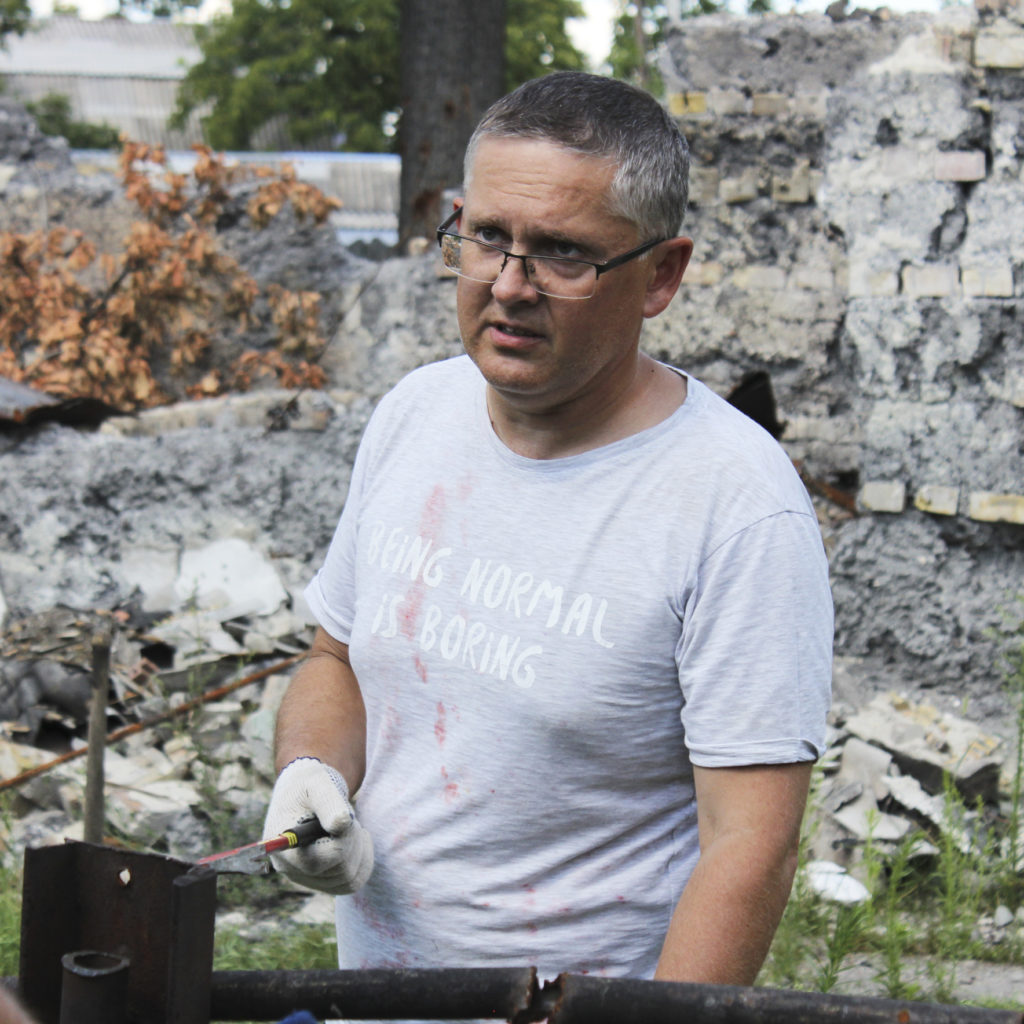
Read the #B50heroes interview with Andrii Mitin:
- what people go through when they start a new life away from home;
- what was the difference between helping in Borodianka and volunteering in Moshchun;
- what is the most exciting thing about working in the financial sector;
- how to live in the same country with people from the occupied territories after the Victory.
| Name | Mitin Andrii Hennadiiovych |
| City | Donetsk |
| Age | 48 years old, birthday – May 27 |
| Profession | works in the financial sector, active volunteer at B50 |
| Hobbies | loitering, watching movies, listening to music (from Depeche Mode to Testament), reading books, collecting model ships |
| Sea or mountains? | the sea, you can loiter, swim, lie around |
| Childhood sport | tried a lot of things – from swimming and wrestling to American football and trampolining |
| Favorite food | just loves to eat, no clear favorite |
– Andrii, where were you on February 24? How did you find out that a large-scale russian invasion of Ukraine had begun?
– I was at home in Kyiv. I found out from my wife. I accidentally saw a message on her phone. She was visiting her daughter in the Czech Republic at the time. I also had a ticket there for March. We wanted to attend my daughter’s bachelor’s graduation and her birthday on March 6.
I have known that we are at war for a long time, since 2014. After Donetsk, where I was born and lived, I wasn’t surprised that something could fly into Kyiv someday. I thought it was a one-time thing. Then I opened the news and it turned out that it was a big deal.
The next day, I went to the military enlistment office, but there was a checkpoint near the military enlistment office and armed men sent me to Bratyslavska Street, to the territorial defense headquarters. I stood in line until they started to weed out those with combat experience, those with a motorcycle.
I signed up for a group of car volunteers led by Sonia Sotnyk. My friends bought radios, body armor, and tablets in Europe and sent them here. I met these shipments in Kyiv and delivered them to the addresses. Then I started to feel needed. But it was irregular, sometimes.
I tried to find where I could be needed, joined various groups, filled out questionnaires, but there was no response. On the one hand, it made me sad, but on the other hand, it was noticeable that there are many volunteers who help both the civilian population and the Armed Forces.

– How did fate bring you to B50? How did you join our community of volunteers?
– I follow a lot of people from “Demokratychna Sokyra” (I support them, I’ve been to their rallies). I once found a post on Facebook by “Demokratychna Sokyra”(Ukrainian political party and non-governmental organization – ed.) spokesperson Khrystyna Morozova that people needed to clear the rubble. It was already April or early May. So I wrote that I could, and she gave me a link to the B50 Volunteers telegram chat. Everything was kind of secretive.)
– Do you remember your first volunteer trip? What did you do then? As far as I understand, it was still a stage of trips to Borodianka?
– I remember my first trip because of the disorganization. I understood that this is a special feature of Borodianka: you arrive and wait for an hour or two until the volunteers are distributed.
And Denys Herasymov, the director of СO CF B50 Volunteers, forgot to pick me up then.) The situation was as follows: we gathered near a school, parked, and then went to the water utility to clean manholes. We worked a little further than everyone else, until about five o’clock. When we finished, there was no one anywhere! It was a long walk to the car, about 3 km. We called Denys to see if someone could pick us up. And he was so surprised: “Oh, Andrii? I thought I forgot something! Sorry, we forgot about you.” But it’s okay, they helped us.
I didn’t like Borodianka because I had to wait for a very long time for something to be resolved. But in Moshchun there are many tasks – you arrive and start working right away. You realize why you came!

– Now you are an active member of the volunteer “repair team”. Most often, you are assigned to locations where something needs to be repaired or arranged. Did you have any experience in this before the war?
For me, repairing roofs, doors, and fences is unexpected. I’m an “office rat” and have smooth hands.) I used to do repairs at home – glue wallpaper, fix baseboards, install sockets, and repair the roof with my father, but I know more theoretically.
I remember the first time we climbed on the roof the most. We had to replace a slate sheet that was high up. We had to disassemble a lot to get to it and then put it back together. I see that the work is hard and there is a lot of it, and there are three of us. We are seeing each other for the first time! However, we did it slowly. And then I feel like, “Here, it’s done!”
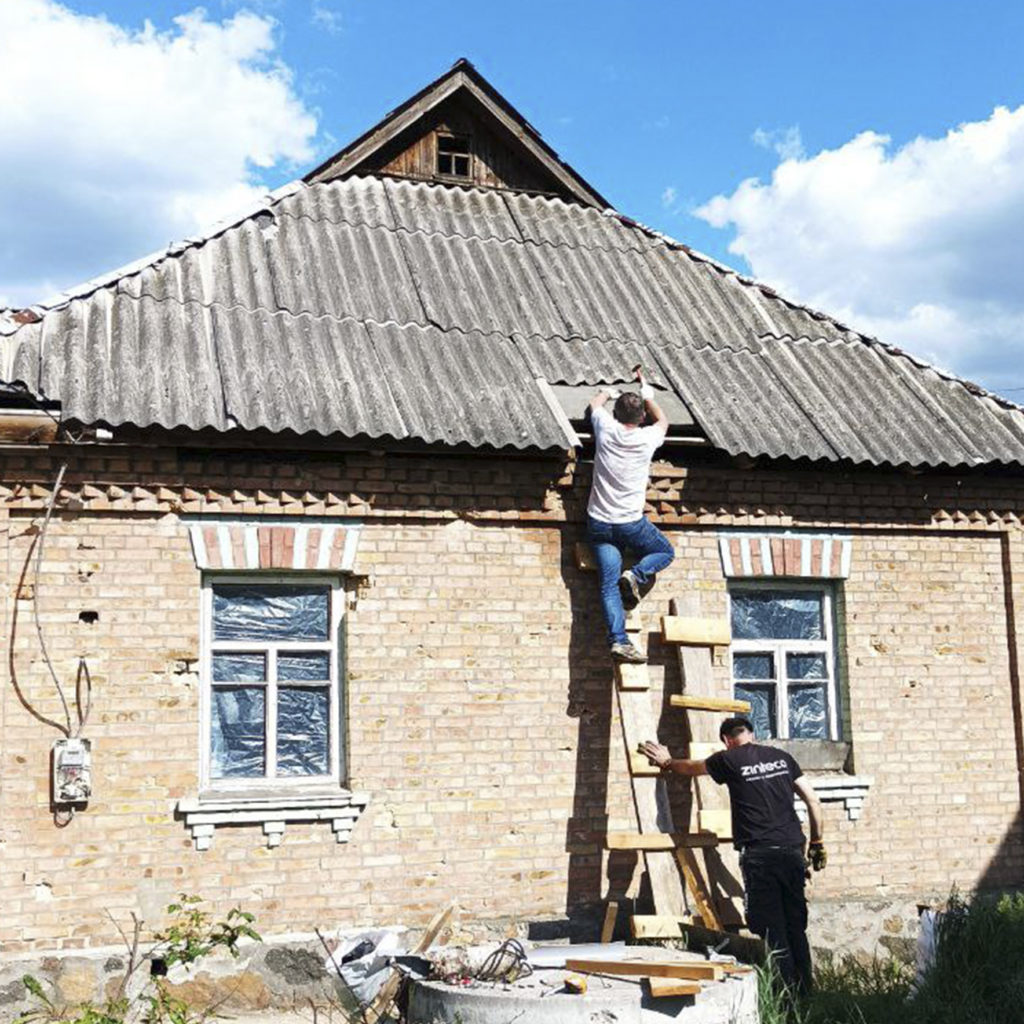
– I also noticed that you are a pretty systematic person. You even volunteer regularly. How do you manage not to burn out?
– I have decided for myself that I have a Saturday to help. Initially, when the heavy work on the rubble began, I worked on Saturday and lay down on Sunday (my back hurt, I couldn’t bend, I had to rest). And if Saturday was easy and I felt that I hadn’t done enough work, I would go back on Sunday.
It’s hard for me to stay at home. We are at war, you can’t just do nothing! I decided that I could do this. I’m not going to look, I want to help. It’s hard to even imagine: a person loses everything, but tries to live on somehow. How can you not help?
– You were in a similar situation when you left Donetsk, weren’t you? You also lost everything…
– No, it wasn’t like that! I had a car, some things, even some savings. It was hard emotionally… I lived in Donetsk all my life, as did my wife. And I had to leave everything and go. And here people really lost everything.

– How did your family react to your decision to leave Donetsk?
– My birthday is May 27, 2014, I’m 40 years old. It had already started, and my younger brother asked me at the table: “Are you russian or Ukrainian?” I am not a conflicted person, but I said: “My passport says ‘Ukrainian'”. And he replied: “No, I know what it says in your passport. Tell me, are you russian or Ukrainian?” I answered that I was Ukrainian. From then on, I realized that I was alone, they did not accept me.
So the decision to leave was unequivocal: for me, for my wife. We did not hesitate at all! And my family – my parents, brother, his wife, children – all stayed there.
I’m surprised how in my family I formed such views! My parents are from russia, from the kursk region. Every summer I went there to visit my grandparents. Even as a child, when I was told that I shouldn’t do something, I always thought, “Why?” I looked around and analyzed. It’s very difficult if you don’t have critical thinking. I had long hair, I hung out with metalheads, I was informal. I felt different from my family.
– So you didn’t leave immediately, in April 2014, but a little later. What was the last straw?
– I took my wife and daughter out of Donetsk earlier. I stayed behind to see what was going on. And when in the summer Girkin (a war criminal who started hostilities in Donbas in 2014 – ed.) moved from Horlivka to Donetsk, I packed my things.
I took what I could fit in the car. My father and mother-in-law sat down with me and said: “We will not let you go alone, we will go with you to Dnipro and then take the train back.” Because people were disappearing one by one. Very often it happened that one person left and disappeared, another left and disappeared…
We did not go directly, but through the fields. We were driving, and there was a checkpoint of DPR and no one was there. I slowly drove up, started to move on, and saw in the rearview mirror a man with a machine gun coming out. I stopped, backed up, opened the trunk. The man asked: “Where are you going? And why are you going? Why aren’t you going to the army to defend the DPR?” I said: “I’m going to take my parents out and come back right away, right away!” He saw that I just had my things, a cat, and let me through.

– How do you feel about the people who stayed behind? Do you condemn them?
– People are different, as they say. Those who can’t do anything stayed in Donetsk. It’s their business – they are adults, they make their own decisions and then bear the consequences.
But I understand these people, they have been living under propaganda all along. And now it is impossible for them to change their minds. In April-May 2022, I didn’t talk to my parents at all. Because they paraphrase the TV, passing it off as their thoughts. I couldn’t stand it, we had a little quarrel, we didn’t communicate. And now they try to talk to me about the weather, about things in general. I told my mom about Bucha, about Moshchun… She doesn’t take it well…
Propaganda is a very powerful thing. In Ukraine, for example, an actor was elected president thanks to it, and this was in a country that was at war! It’s so funny: people are being killed over there, and here we are having a joke in the elections. Even now they say that it is only thanks to him that the army is holding back the russian invasion. I can’t even imagine what’s going through people’s minds.
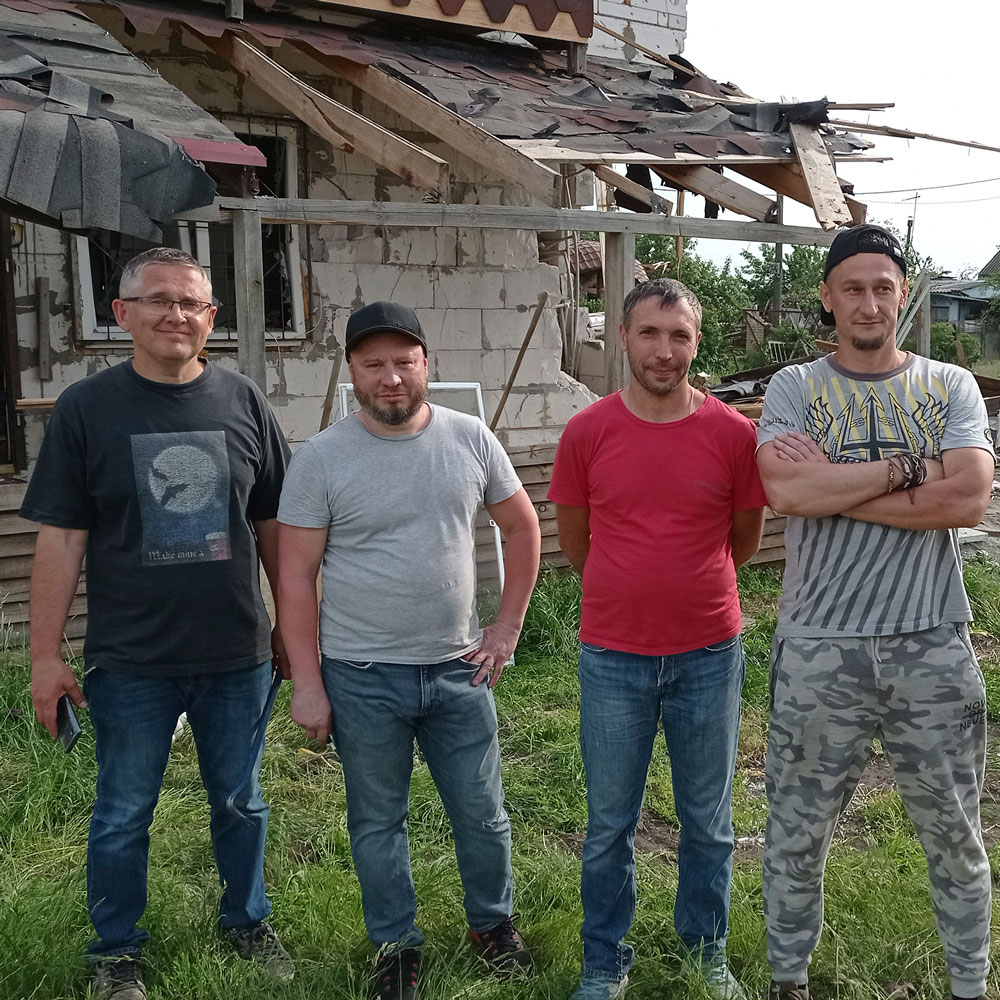
– How did you adapt to your new life after leaving your small homeland and all the past?
– At first, I went to Dnipro and rented an apartment there. I hadn’t even seen it yet! I looked at the map and saw that it was near the subway, which was great. But it turned out to be the very edge of Dnipro. It was a shabby, dirty, smelly apartment. There were no skirting boards! It took me only two weeks to fix it up so that I could bring my wife and schoolgirl daughter there.
In Donetsk, I worked as a securities trader. When we moved, I still had to close the company I worked for (licenses/reports). But they paid me a penny for it. There was a time in Dnipro when I ran out of money. I even delivered pizza and drove a taxi because I had to do something. I don’t shy away from dirty or non-prestigious work.
Later we saw that there was no work and the money was disappearing. So we decided to buy an apartment in Dnipro during the construction phase. We had some savings for our daughter’s education (we planned for her to study in the Czech Republic), and another part was on the way. It turned out to be quite a good deal.
So in early June 2015 we moved in, and at the end of July my old partners and friends offered me a job in Kyiv. We wanted our daughter to finish school in Dnipro. So I spent 3 years visiting my family – 5 days in Kyiv, and on weekends I went to their house in Dnipro.
In 2017, we decided for ourselves that we would not return to Donetsk in any case.
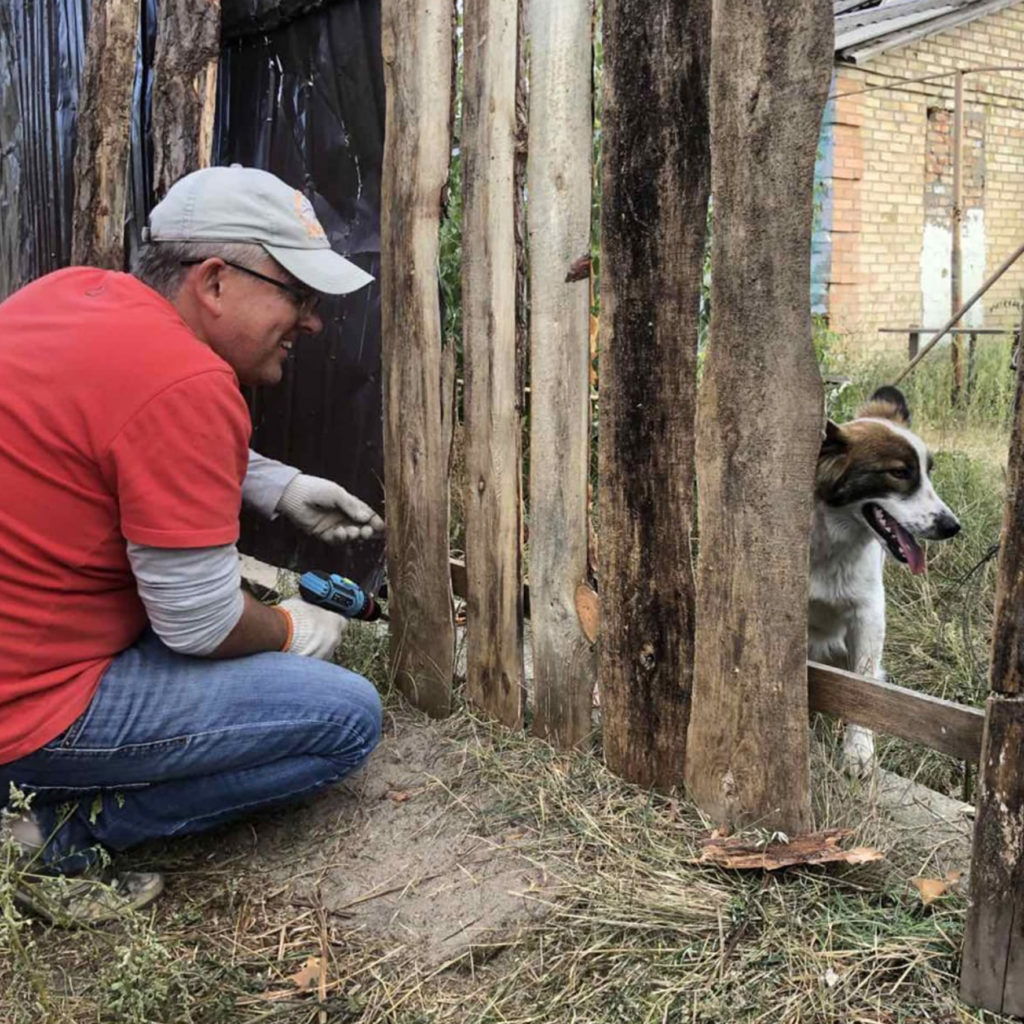
– How did your family’s move to Kyiv begin?
With attempts to sell our house in Donetsk. We put an ad on OLX that we were selling our three-room apartment without coming to Donetsk, through a power of attorney. We met with a notary in Toretsk (it was close to the so-called demarcation line at the time), drew up the documents, opened a deposit, and the buyers paid the money. It turns out that for a three-room apartment there, we bought a one-bedroom apartment in Troіeshchyna in Kyiv (we also added money). We sold it for 2.8 times cheaper than it cost before.
We finally moved in 2018. We also sold our apartment in Dnipro and bought another one here.

– You mentioned that you work in finance. Tell us what exactly do you do?
– To keep it simple, I’ll say that I work in the financial sector, in an asset management company.
My first serious job was at the Donetsk Stock Exchange. Right after graduation, I tried to be an insurance agent. But then my friend told me that he was hired at the stock exchange and they needed another person.
I re-read all my textbooks, came there, and I had a nervous breakdown – my first serious interview, the chairman of the board was going to conduct it. But the interview was short and impressive! I was asked: “So you are the Andrii my friend was talking about? Well, come to work tomorrow. You will work not at the stock exchange itself, but in our brokerage office.
I worked there for a very long time! I even conducted auctions, and was an auctioneer (the person with the hammer). At that time, there was privatization, businesses and facilities were being sold. For example, a bunch of people from Kyiv came to the auction for the sale of 10% of Donetsk regional power company – a real auction. There were scandals, media, interviews.
I like it when you have a deal or a project, you build it up, and it works out! For example, land deals. I worked out all the steps with the notary and the buyers. There are stacks of documents, nuances, and points to coordinate. And when you put it all together, when you conduct the transaction, when all the signatures are put, it’s amazing!
– How do you see the future of Ukraine? When do you think the war will end?
I don’t know whether the war will end abruptly or protractedly, as it was before February, when it seemed to be there and everyone forgot about it. I hope that it will be a definite end to russia. Maybe it will end very quickly, for example, putin dies, others come in who want to keep their money, and they finish everything quickly. Or they will burn to the end, like Hitler.
Everything will be fine, definitely! I am sure that Ukraine will move towards Europe.
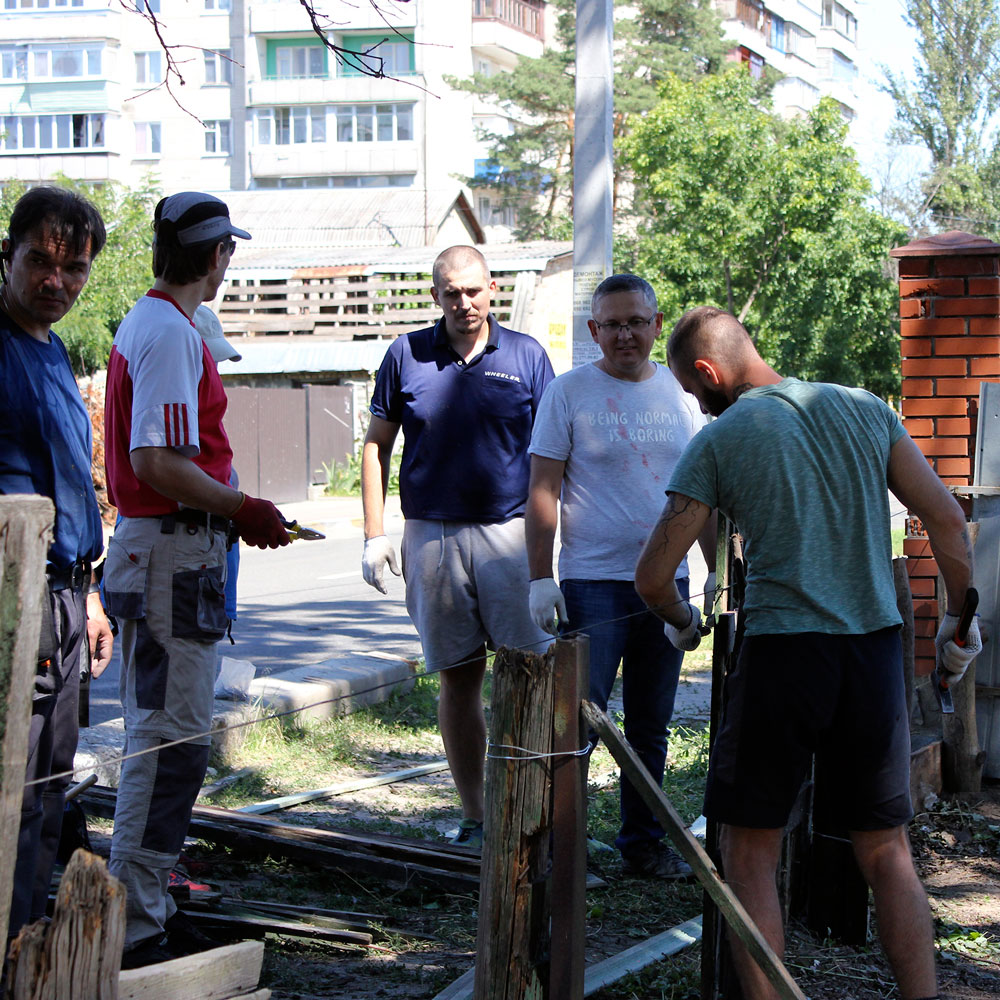
– As a person from Donetsk and who has relatives there, how can we find a common language after the Victory with people who lived there for so many years under the influence of propaganda?
There should be a “lustration” for people who collaborated with the occupiers. If you were a plumber there and worked in their institution, that’s fine. But if you taught children how great russia is and how bad Ukraine is, this is a collaboration. If you worked in the authorities of that country, this is definitely cooperation. If you were selling in a store, it is not.
There must be restrictions on civil rights. I mean the right to run for office, to vote, at least for the duration of the occupation. Restrictions on the ability to work in state institutions.
For those who received russian citizenship, it’s definitely “goodbye.” If you want to become a citizen of Ukraine again, you need to pass exams. If you were forcibly given russian citizenship, it would not be difficult to pass the exam.
I understand that when they were occupied, they did not want to leave their homes and had to adapt. As they say, cockroaches die, but people get used to it. And if you have made a decision for yourself and want to become a Ukrainian again, then the exam is the least that can happen!
If a person wants to go to russia, go ahead. If you want to come back, why not?
The interview team:
- Coordinator – Anna Norynska
- Interviewer – Nataliia Hryniuk
- Editor – Svitlana Rudokvas
- Translator – Anastasiia Lypchak


